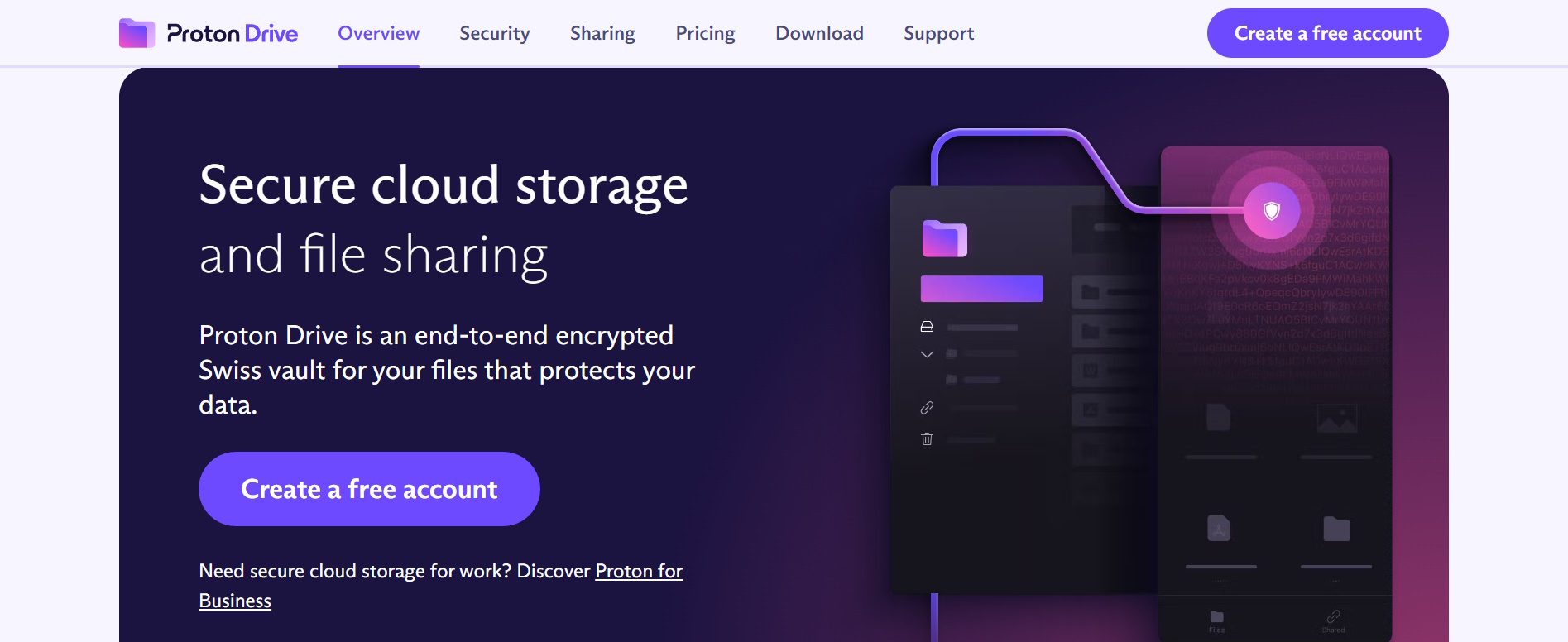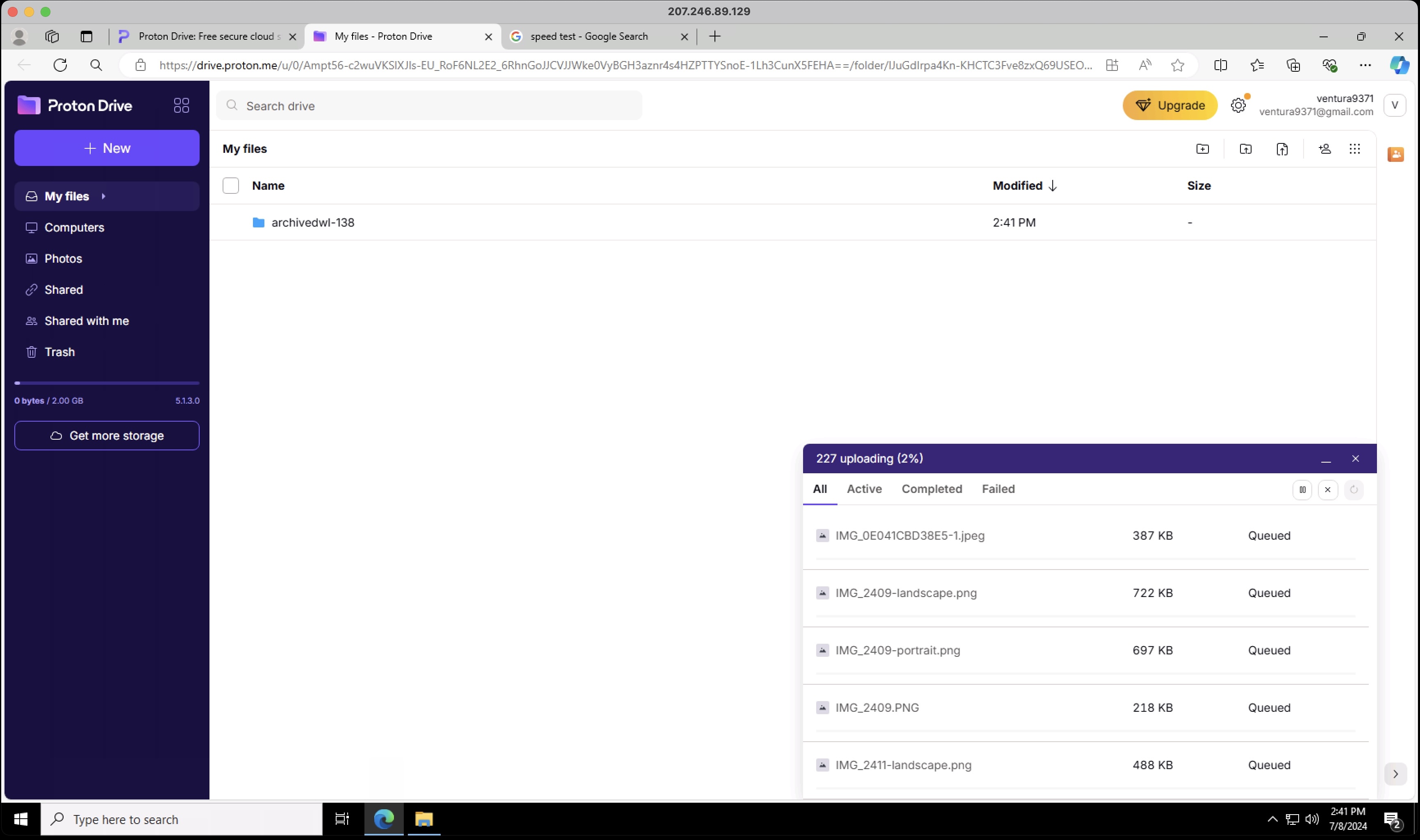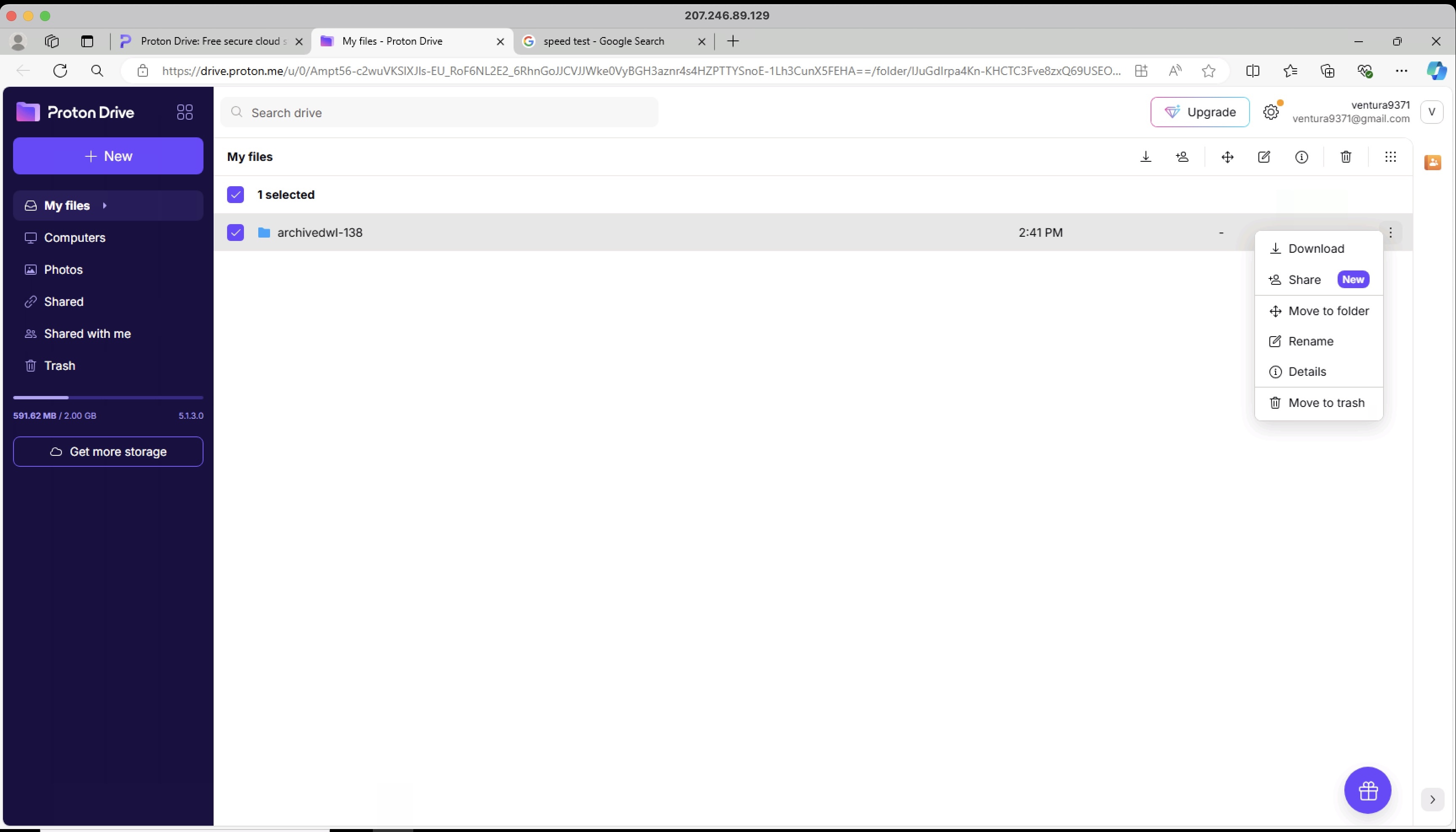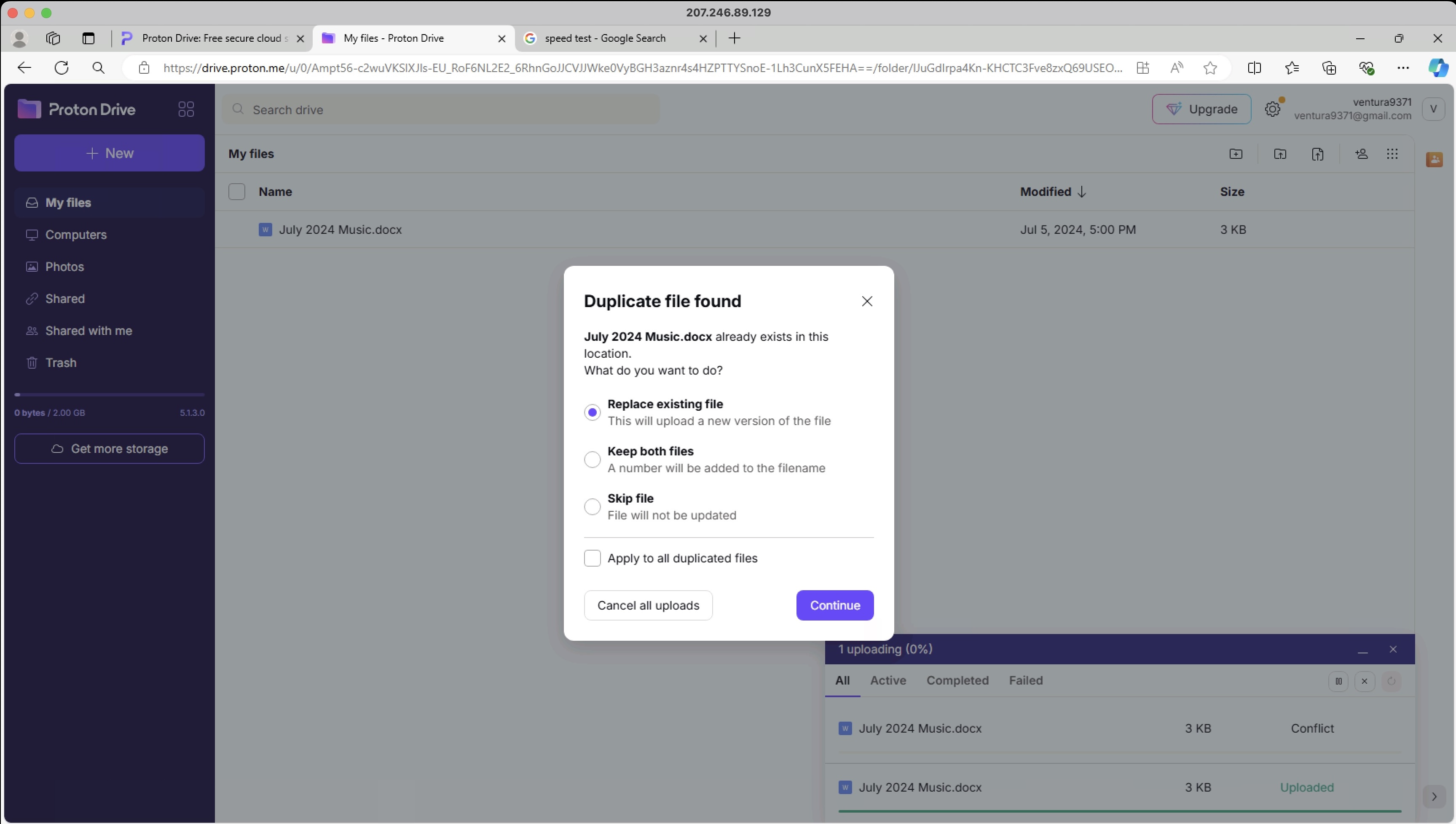
Realistically, the internet is probably one of the last places a user can expect privacy, as multiple watchers, such as our browser, the ISP, our email, and the government cons, constantly surveil us. From this reality, back in 2014, Proton Drive emerged from a meeting of multiple scientists that met at CERN, which perhaps not coincidentally was the birthplace of the World Wide Web in 1991.
Proton argued that users should not need to hand over so much personal data to use the Internet and should be able to regain their privacy. Aligning with this goal, Proton indicates that it does not sell its 100 million users' data to advertisers or third parties.
This company offers other services, including Proton VPN, Proton Mail, and Proton Calendar, in addition to Proton Drive. It also has an encrypted password manager, Proton Pass, currently in beta.
Proton Drive: Features
True to its roots at CERN, Proton remains based out of Switzerland. The benefit of this for worldwide users is that Swiss privacy laws are among the strongest globally, making Proton Drive a stable and secure offering.
Following the raison d'etre for Proton Drive is its robust security measures. Built upon the same foundation as Proton Mail, well known for its end-to-end encryption, Proton Drive ensures that your files remain secure and private. The service employs zero-access encryption, which means that only the user possesses the encryption keys. This ensures that even Proton Mail cannot access your data. With data breaches becoming increasingly common each day, Proton Drive's focus on privacy and security is the major advantage of this storage service compared with other solutions.
Collaboration is yet another advantage of modern cloud storage, with Proton Drive delivering in this area. This allows users to share files and folders with individuals or groups, providing complete and granular control over permissions and access levels. Collaborators can view, edit, or comment on shared files, enabling cooperation that is seamless. Version history and file activity logs further enhance this collaboration. This allows users to track changes and revert to previous versions in case they are needed. These features make Proton Drive suitable as both a personal and a professional tool, facilitating smooth teamwork and efficient file sharing.
Proton Drive has availability on multiple platforms, including web, PC, and mobile devices. This cross-platform compatibility ensures that users can access their files seamlessly from whatever device that they are on. The desktop and mobile applications are thoughtfully designed, offering a consistent user experience across these different platforms. Additionally, Proton Drive integrates well with popular productivity tools such as Microsoft 365 and Google Workspace, further enhancing its versatility and usability.
As would be expected from such a polished application, Proton Drive takes data redundancy seriously to protect your files. It utilizes an advanced storage infrastructure, employing redundant servers, and a variety of data replication techniques. This approach minimizes the risk of data loss and therefore enhances reliability. Moreover, Proton Drive maintains this with regular backups, providing an added layer of protection that safeguards your valuable data.
Proton Drive: Pricing
Proton Drive offers various tiers to meet different storage needs. They have a free tier with 2 GB of storage, less than what other providers like Microsoft OneDrive offer for their free tier (5GB). However, completing tasks can earn an additional 3GB of free storage.
The lowest-paid tier offers 200 GB of data at a starting price of $4.99/month, which can be discounted to $3.99/month when paid annually or $3.49/month when paid for 24 months in advance. This tier includes end-to-end encryption and priority support.
There is a higher paid tier with 500 GB of data, priority support, and access to the entire Proton ecosystem, including paid versions of Proton Calendar, Proton VPN, and Proton Mail. This tier costs $11.99/month, $9.99/month for the year, or $7.99/month for 24 months, which is reasonable considering the additional services included.
Proton Drive: Support
Proton does offer support, but the options are limited for direct contact. We did not find a phone, fax, or chat option, which we would have liked to see at least one of them. The option we did find for direct support is a support portal, and there it does at least have a direct email address. It is stated that it is 24/7 support, and Proton does emphasize that privacy is paramount, even with a support query, and indicate how to contact them directly and securely via Proton Mail for a sensitive issue.
The rest of the support is self help, with a searchable database of articles that address concerns.
Proton Drive: Our tests
We conducted three core tests on Proton Drive to measure sync speed, file recovery, and versioning. Our tests were performed on a Windows 11 virtual machine using the Proton Drive web client. The virtual machine was connected to the internet via fiber broadband and a VPN server. In our speed tests, the average upload speed consistently showed a blazing fast 2350 Mbps.
- Test 1 - Sync speed
In our most recent tests, we copied a 589 MB folder into the application directory and timed how long it took for the desktop client to synchronize the files with the cloud. The folder contained 228 files spread across nine folders, including MP3s, images (PNG, JPEG), metadata files, and a PDF.
We were surprised by the slow upload speed. It took 4 minutes and 17 seconds, considerably slower than alternatives such as NordLocker and Internxt.

- Test 2 - File recovery
For this test, we uploaded a folder and then deleted it from the Proton Drive. We checked to see if the files were removed from the cloud drive and if we could recover them. Instead of being deleted, the files were sent to the Trash. We were able to easily retrieve the files from the Trash. After that, we deleted the files again and then permanently deleted them from the Trash.

- Test 3 - Versioning
Many top cloud providers offer file versioning, which allows you to revert to a previous version of a file. We uploaded a single Microsoft Word document to Proton Drive and then made changes to the document on our end before uploading it again. Proton Drive prompted us to choose between keeping both versions or removing the older one, and we decided to remove the older version in favor of the new file.
Afterward, we were able to see both versions and restore them if needed. However, please note that the free version of Proton Drive only allows you to recover 10 older documents within seven days, while there are no restrictions on the paid versions.

Proton Drive: Final verdict
Proton Drive stands out for its emphasis on security, ease of use, collaboration features, and cross-platform compatibility. With its robust encryption, intuitive interface, free tier, and competitive pricing, it shines in the crowded cloud storage market. Whether you are an individual user in need of secure storage or a team looking for efficient collaboration tools, Proton Drive offers an appealing package. As Proton Drive continues to evolve and innovate, it is poised to become a trusted go-to choice for users prioritizing privacy and security in their cloud storage needs.






